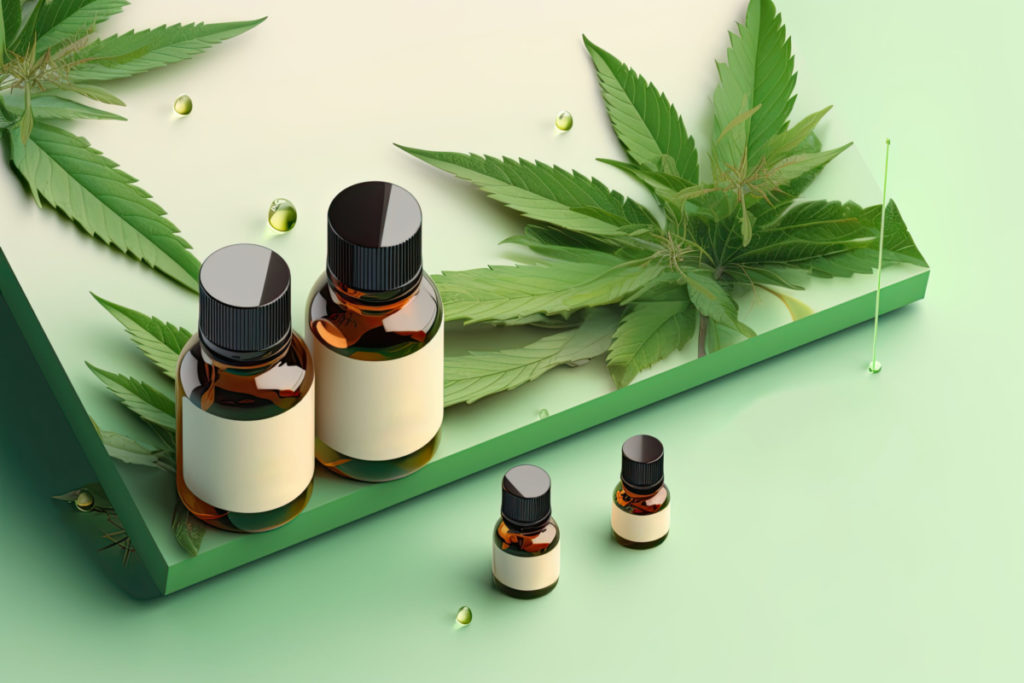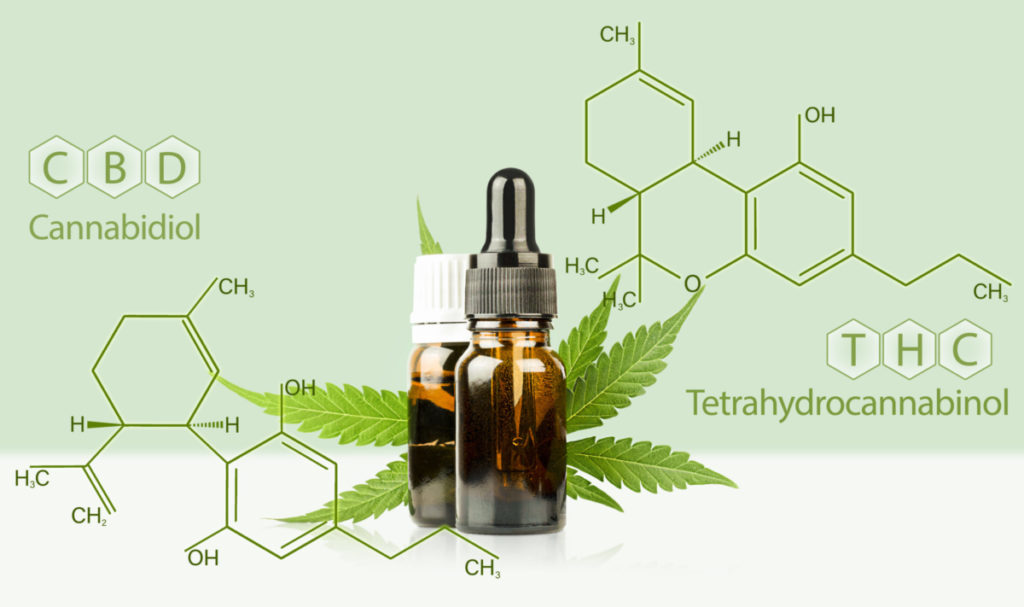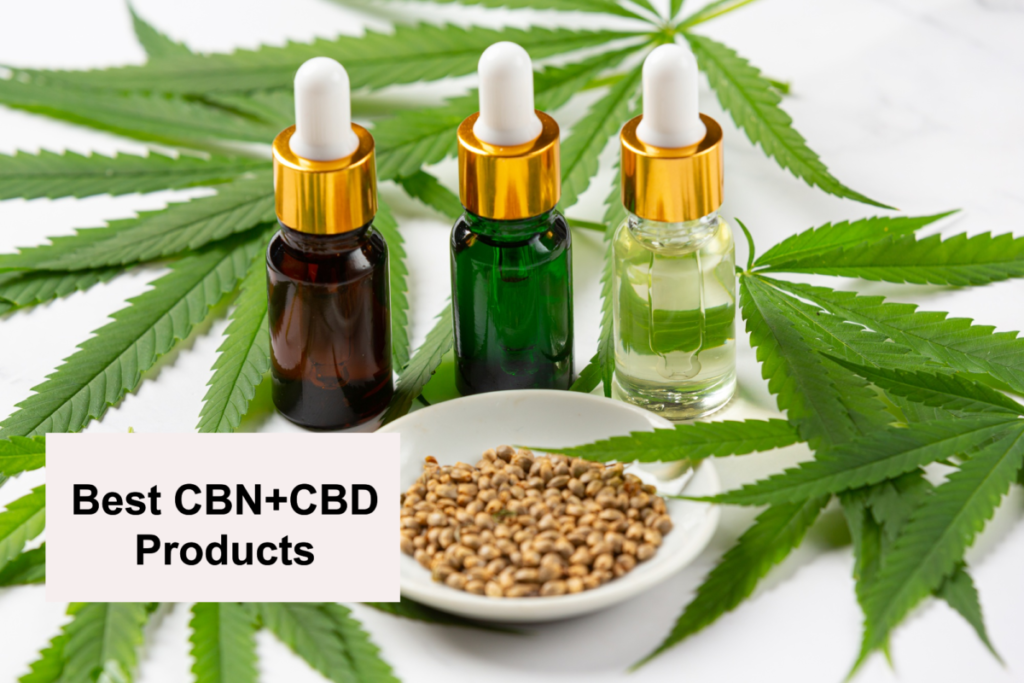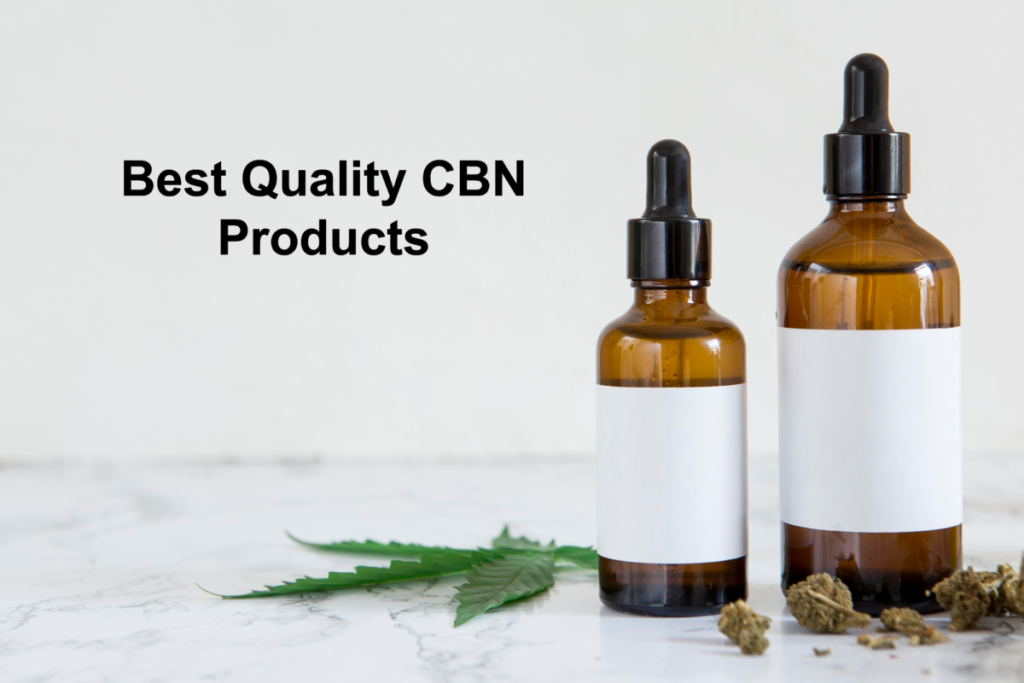Drug testing is a widely practiced procedure conducted by employers, sports organizations, and legal authorities to detect the presence of certain substances in an individual’s system. It plays a crucial role in various industries, ensuring safety, compliance, and fair competition. However, with the growing popularity of cannabinoids like CBN and CBD, many people have concerns about whether these compounds can cause them to fail a drug test.
In this blog, we will explore the topic of drug testing in relation to CBN and CBD. We will delve into the significance of drug testing, introduce CBN and CBD, and address the common concern of failing a drug test due to these cannabinoids. By understanding the facts and science behind drug testing and the effects of CBN and CBD, we aim to provide clarity and alleviate any misconceptions or anxieties related to this topic.
Join us as we delve into the world of drug testing, CBN, and CBD to gain a better understanding of the potential implications and to separate fact from fiction. Let’s explore the fascinating intersection of cannabinoids and drug testing, and empower ourselves with knowledge to make informed decisions.
Understanding Drug Tests and THC
Explanation of Different Types of Drug Tests:
- Urine Drug Test: Urine drug testing is one of the most common methods used to detect the presence of drugs in a person’s system. It is cost-effective, non-invasive, and can detect a wide range of substances. Urine tests primarily screen for the presence of drug metabolites, including THC.
- Blood Drug Test: Blood tests are less commonly used for drug screening, but they provide more immediate results. They are typically used in situations where recent drug use needs to be determined. THC can be detected in the bloodstream shortly after consumption but is quickly metabolized, making it less detectable over time.
- Hair Drug Test: Hair tests involve analyzing a small sample of hair to detect drug use over a longer period. The presence of THC and its metabolites can be detected in hair for up to 90 days or more, depending on the length of the hair and growth rate.
- Saliva Drug Test: Saliva tests are becoming more prevalent due to their convenience and ease of administration. They can detect recent drug use, including the presence of THC, within a shorter detection window compared to urine or hair tests.
Also Read: Best THC-Free Natural CBN Tinctures In 2023
Focus on THC (Tetrahydrocannabinol) and Its Presence in Cannabis:
THC is the primary psychoactive compound found in cannabis, responsible for its euphoric and intoxicating effects. It is the cannabinoid that drug tests typically target to detect cannabis use. THC can accumulate in the body after cannabis consumption, and its metabolites can be detected in various bodily fluids and tissues.
Legal Limits for THC in Different Jurisdictions:
The legal limits for THC in different jurisdictions vary significantly. In some places, cannabis and its derivatives are fully legalized, allowing for higher THC concentrations. In other areas, there are legal restrictions on THC content, such as limits on the amount of THC allowed in CBD products.
It is crucial to understand the local laws and regulations regarding THC limits, especially if you are subject to drug testing. Compliance with local regulations can help ensure that you make informed decisions regarding cannabis use while minimizing the risk of failing a drug test.
In the next sections of this blog, we will explore whether CBN (Cannabinol) or CBD (Cannabidiol) can cause a person to fail a drug test, shedding light on the specific properties and effects of these cannabinoids.
Differentiating CBN, CBD, and THC
Explanation of the Chemical Composition and Properties of CBN, CBD, and THC:
- CBN (Cannabinol): CBN is a cannabinoid that is derived from the degradation of THC over time. It is not typically present in fresh cannabis but develops as the plant material ages or is exposed to heat and light. CBN has some overlapping properties with THC but is considered non-intoxicating and has a different set of effects.
- CBD (Cannabidiol): CBD is another prominent cannabinoid found in cannabis. It is known for its potential therapeutic properties and is widely used for various health and wellness purposes. Unlike THC, CBD is non-intoxicating, meaning it does not produce a psychoactive “high” effect.
- THC (Tetrahydrocannabinol): THC is the primary psychoactive compound in cannabis, responsible for the euphoric and mind-altering effects commonly associated with cannabis use. It binds to cannabinoid receptors in the brain and produces various physiological and psychological effects.
Highlighting the Psychoactive Effects of THC and Lack Thereof in CBN and CBD:
THC is known for its psychoactive effects, which can include altered perception, relaxation, euphoria, and increased appetite. These effects are what contributes to the “high” experienced by individuals who consume cannabis with high THC content. On the other hand, both CBN and CBD are considered non-intoxicating, meaning they do not produce the same psychoactive effects as THC.
Also Read: Best CBN+CBD Products In 2023
Emphasizing the Minimal or Non-Detectable Levels of THC in CBN and CBD Products:
When it comes to CBN and CBD products, it is important to note that reputable manufacturers typically produce them with minimal or non-detectable levels of THC. This is achieved through careful extraction and purification processes to remove or reduce THC content to comply with legal regulations and provide consumers with THC-free or low-THC options.
These minimal or non-detectable levels of THC in CBN and CBD products make it unlikely for them to cause a person to fail a drug test for THC. However, it is essential to choose products from reputable sources and ensure they undergo third-party testing to confirm their THC content.
In the following sections, we will delve deeper into the topic to explore the specific factors and considerations related to CBN, CBD, and drug testing, helping you understand the potential risks and mitigate any concerns regarding failing a drug test.
Drug Testing and CBN
Addressing the Possibility of CBN Triggering a Positive Drug Test:
While CBN is generally considered non-intoxicating and does not produce the same psychoactive effects as THC, there is a concern among some individuals that consuming CBN products could lead to a positive drug test for THC. It’s important to understand the factors involved and the likelihood of this occurrence.
Discussion of Cross-Reactivity and False Positives in Drug Tests:
Drug tests typically target THC and its metabolites, aiming to identify recent cannabis use. However, some drug tests may have the potential for cross-reactivity, where substances other than THC can trigger a false positive result. Cross-reactivity occurs when the test cannot differentiate between different compounds that share structural similarities.
While cross-reactivity is a possibility, it is important to note that standard drug tests are designed to detect THC metabolites rather than CBN specifically. The metabolites of CBN are different from those of THC, and therefore, the likelihood of CBN triggering a false positive for THC is generally low.
Mentioning the Rarity of CBN-Specific Drug Tests:
It is worth mentioning that CBN-specific drug tests are relatively rare. Most standard drug tests focus on THC and its metabolites. Given that CBN is a minor cannabinoid with limited recreational use, specific tests targeting CBN are not commonly conducted in routine drug screenings.
However, it is essential to exercise caution and ensure that the CBN products you consume are derived from reputable sources. Third-party lab testing can provide transparency regarding the composition of the product, including THC levels, and help you make informed decisions.
By understanding the possibilities of cross-reactivity, the rarity of CBN-specific drug tests, and the minimal THC content in reputable CBN products, you can better assess the potential risk of failing a drug test due to CBN consumption.
Also Read: Best CBN Products For A Good Night’s Sleep In 2023
Drug Testing and CBD
Clarifying the Potential Risk of CBD Causing a Positive Drug Test:
CBD (Cannabidiol) has gained popularity for its various potential health benefits, but there is concern among some individuals about the possibility of CBD causing a positive drug test for THC (Tetrahydrocannabinol). It’s important to understand the factors involved and the distinction between different types of CBD products.
Differentiating Between CBD Isolate and Full-Spectrum CBD Products:
CBD can be obtained in two primary forms: CBD isolate and full-spectrum CBD. CBD isolate is pure CBD, devoid of other cannabinoids, including THC. On the other hand, full-spectrum CBD products contain a range of cannabinoids, including trace amounts of THC, but within the legal limits (typically 0.3% or less).
If you are using CBD isolate products from reputable sources, the risk of THC showing up on a drug test is minimal due to the absence of THC. However, with full-spectrum CBD products, there is a slight risk, albeit low, of THC being detected in drug tests, especially with regular or high-dose consumption.
Explaining the Legal Requirements and Quality Standards for CBD Products:
CBD products derived from industrial hemp containing 0.3% THC or less are legal under federal law in many countries, including the United States. However, it is essential to source CBD products from reputable companies that adhere to stringent quality standards.
Reputable CBD manufacturers often subject their products to third-party lab testing, which provides a detailed analysis of the product’s cannabinoid profile, including THC levels. By reviewing the lab reports, you can ensure that the CBD product you choose complies with legal requirements and has minimal THC content.
It is crucial to be informed about the legal status of CBD in your jurisdiction and understand the specific drug testing policies of your workplace or organization. If you have concerns about drug tests, choosing CBD isolate products or discussing your CBD use with the relevant authorities can help mitigate any potential risks. Remember, while the risk of CBD causing a positive drug test is low, it is advisable to exercise caution, research product quality, and consider the legal requirements and policies applicable to your situation.
Factors to Consider
Variability in Product Quality and Labeling Accuracy:
One of the challenges in the CBD industry is the variability in product quality and labeling accuracy. Due to the growing demand for CBD products, the market has become saturated with numerous brands and products, making it crucial to choose reputable manufacturers.
Some products may not accurately reflect the CBD content stated on their labels, and there have been instances where CBD products have been found to contain higher levels of THC than advertised. This inconsistency in quality and labeling underscores the importance of sourcing CBD products from reputable companies that prioritize transparency and adhere to rigorous quality control standards.
Also Read: Best Quality CBN Products In 2023
Individual Metabolism and Unique Responses to Cannabinoids:
Another factor to consider is that individuals can have varying metabolism rates and unique responses to cannabinoids. While CBD is generally well-tolerated, it is possible that certain individuals may metabolize CBD differently, potentially leading to unexpected outcomes in drug tests. Factors such as body composition, genetics, and overall health can influence how cannabinoids are processed and eliminated from the body.
Importance of Choosing Reputable and Third-Party Tested Products:
To minimize the risks associated with drug tests and ensure the accuracy of CBD content, it is essential to choose reputable brands that prioritize product quality and undergo third-party testing. Reputable manufacturers often make their lab test results readily available to consumers, confirming the accuracy of their product labeling and providing assurance regarding THC levels.
Third-party testing involves an independent laboratory analyzing the CBD product for its cannabinoid profile, including THC content. This verification process helps confirm that the product complies with legal requirements and provides accurate information to consumers. By choosing third-party tested products, you can have more confidence in their quality and minimize the risk of unexpected THC detection in drug tests.
Also Read: Best CBN Full Spectrum Tinctures In 2023
Conclusion
In conclusion, the likelihood of CBN (Cannabinol) or CBD (Cannabidiol) causing you to fail a drug test is generally low, especially if you are using high-quality, third-party-tested products. CBN and CBD are non-psychoactive cannabinoids that do not produce the same intoxicating effects as THC (Tetrahydrocannabinol).
While THC is the primary compound responsible for triggering a positive drug test for cannabis use, CBN and CBD products typically contain minimal or non-detectable levels of THC. However, it’s important to note that there can be variations in product quality and labeling accuracy within the CBD industry, which is why choosing reputable manufacturers is crucial.
Cross-reactivity and false positives in drug tests are rare for CBN-specific tests, and CBD alone is unlikely to result in a positive drug test. However, it’s essential to consider individual factors such as metabolism and unique responses to cannabinoids, as well as the potential for low-quality or mislabeled products that may contain higher levels of THC.
To mitigate any potential risks, it is recommended to select reputable brands that prioritize transparency, adhere to quality control standards, and provide third-party testing results. These lab reports can confirm the accuracy of CBD content and ensure compliance with legal requirements, giving you more confidence in the products you choose.
Ultimately, by being informed, using high-quality products, and considering individual factors, you can minimize the chances of CBN or CBD causing you to fail a drug test while still benefiting from the potential therapeutic effects of these cannabinoids.
Interesting Reads:
CBN Effects – How Cannabinol Powerfully Supports Sleep, Mood, and Health






